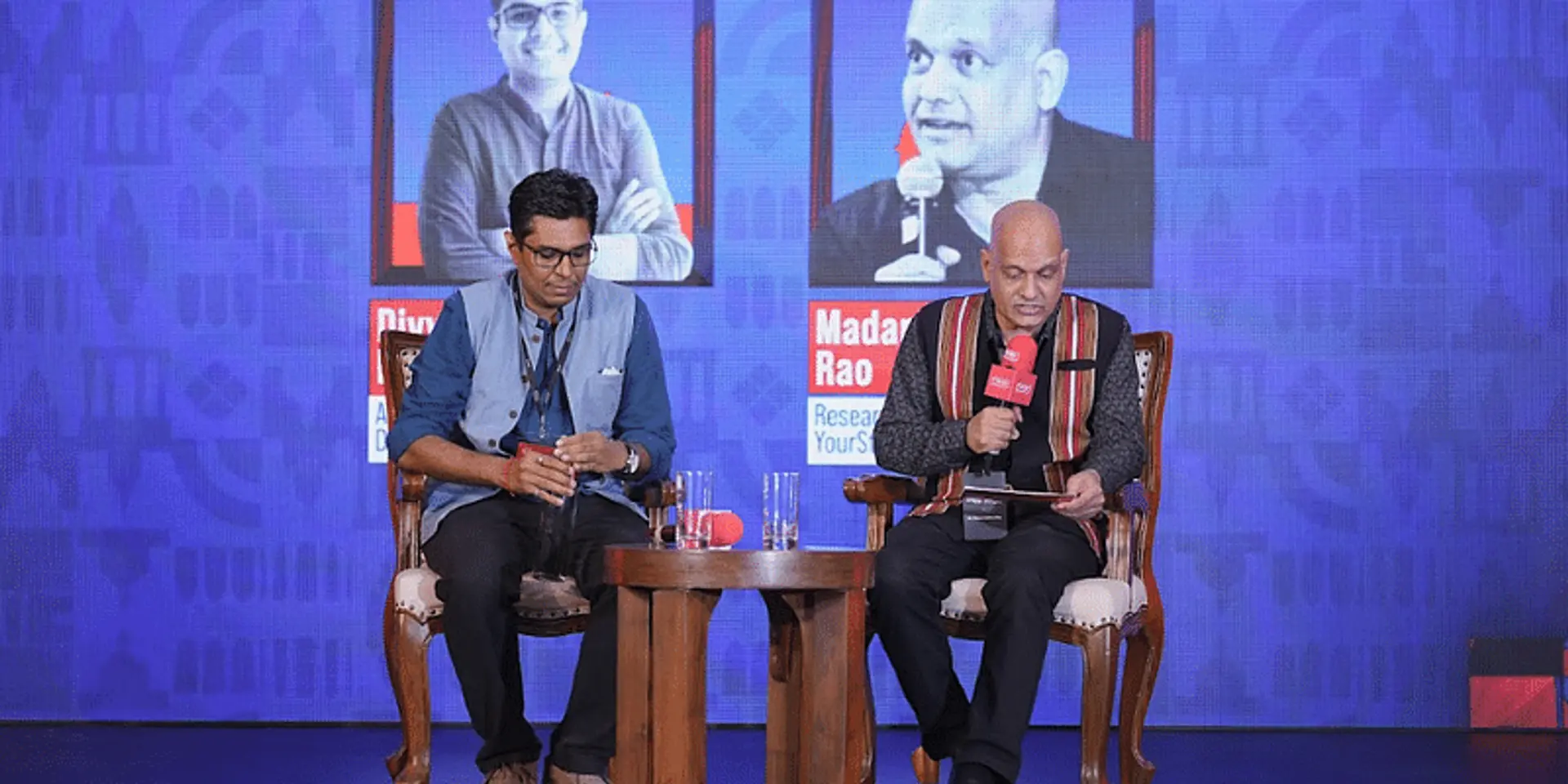Uncovering the secrets of good storytelling, with Hindi author Divya Prakash Dubey
Divya Prakash Dubey has written six books—two story collections and four short novels, as well as Hindi dialogues for the movies Ponniyin Selvan: I and Ponniyin Selvan: II.
Good storytelling is becoming increasingly critical across domains, whether it is for producing written or visual content, creating data-driven narratives, or marketing a brand, Indian Hindi author Divya Prakash Dubey said at TechSparks Mumbai 2024, as he decoded what it takes to create a memorable story.
"A good story has to present a problem—such as someone wanting something they don't have. And their struggle to get this thing should touch our own struggles in some way," Dubey explained.
He added, "It isn't about structure, since a good and a bad story can have the structure; rather, as long as a story connects with the audience, it has worked."
Dubey has written six books—two story collections and four short novels, as well as Hindi dialogues for the movies Ponniyin Selvan: I and Ponniyin Selvan: II.
He has been publishing his work since 2013 when he began writing alongside his full-time job as a marketing executive.
Sharing his philosophy towards setting the premise of a story, Dubey said, "Through a simple premise, good stories show us a new truth. For example, there is a story about someone who is given only three months to live, and they proceed to live their life to the fullest in a much better manner than we do. The question here is: can only a dying person teach us how to live well?"
Dubey also spent some time talking about how he transitioned from a corporate job to becoming a full-time author and shared some of the most critical lessons he learned during his early days as a writer.
"The core, i.e., the emotion can remain the same across stories," he said, breaking into an analogy:
"As a vegetarian, I may go to new restaurants often, but I usually order paneer and dal prepared in different styles. The core remains the same, but the treatment is different. In the same way, the fundamental truths of a story should match ours. Otherwise, the story is not good."
Edited by Suman Singh







